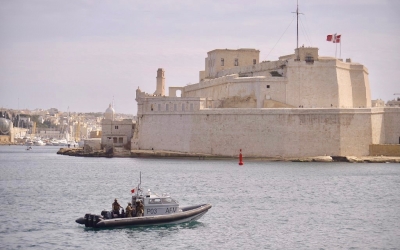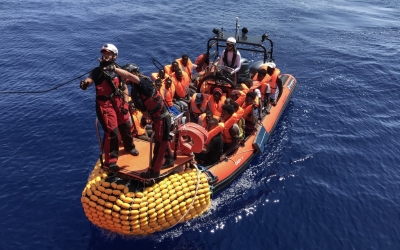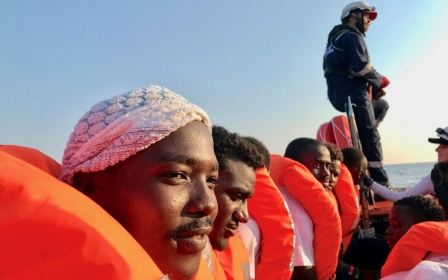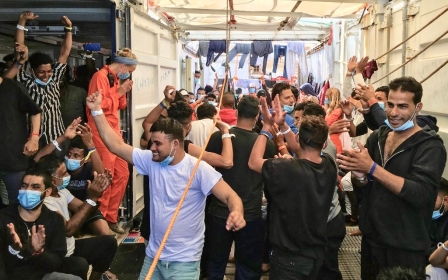Amnesty says Malta using 'dangerous and illegal' measures against migrants
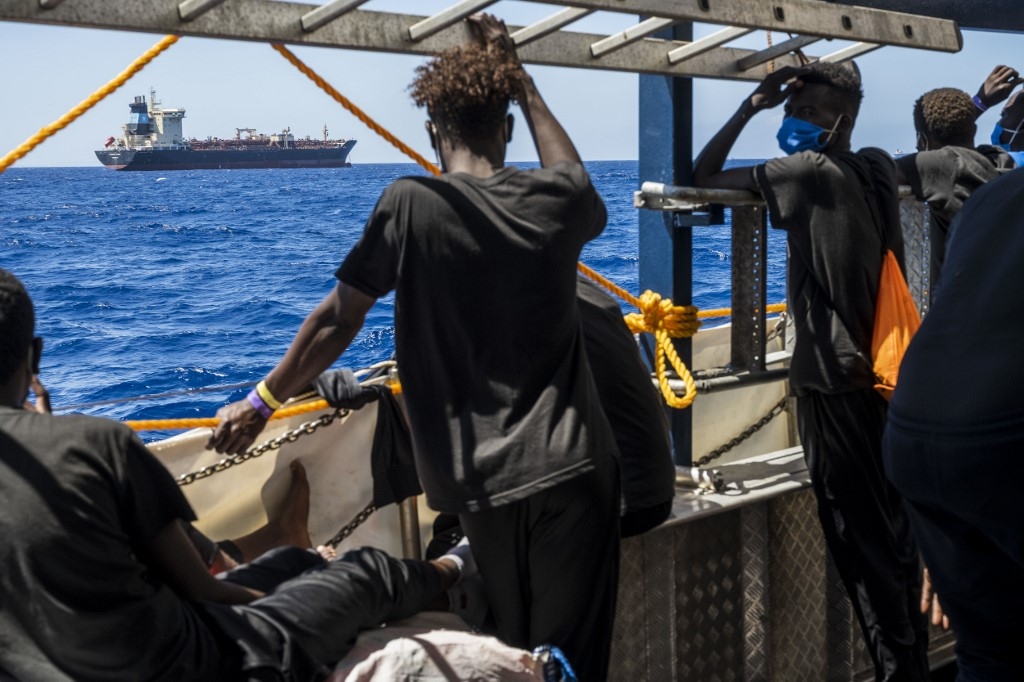
Amnesty International has accused Malta of using "dangerous and illegal" measures against migrants and refugees arriving at sea from North Africa.
The rights group said the approach taken by the Maltese government might have led to "avoidable deaths", in a report that alleged a string of human rights abuses against migrants.
"The Maltese government has resorted to dangerous and illegal measures for dealing with the arrivals of refugees and migrants at sea," Amnesty said.
"This escalation of tactics included arranging unlawful pushbacks to Libya, diverting boats towards Italy rather than rescuing people in distress and illegally detaining hundreds of people in ill-equipped ferries off Malta's waters."
Amnesty's report was released hours after UN rights agencies on Monday called on Malta and the European Union to end the latest humanitarian crisis on board a cargo ship, the Maersk Etienne, off the Maltese coast, on which 27 migrants are currently stranded since being rescued more than a month ago.
In May, Malta signed an agreement with Libya's Tripoli-based government to "prevent people from reaching Malta", which further exposed migrants to brutal treatment after they were returned to Libyan refugee camps, Amnesty noted in its 34-page report.
"Some of the actions taken by the Maltese authorities may have involved criminal acts being committed, resulting in avoidable deaths, prolonged arbitrary detention and illegal returns to war-torn Libya," it said.
The report noted that on 15 April, a group of 51 people, including seven women and three children, were unlawfully returned to Tripoli after being rescued in Malta's search and rescue region.
The boat conducting the rescue, contracted by the Maltese government, took those onboard back to Libya and handed them over to the Libyan authorities. Once the vessel reached Libya, five people were dead, and a further seven people were missing at sea, according to Amnesty.
Malta PM rejects responsibility
Both Malta and Italy closed their ports to migrants in April, when the coronavirus pandemic began taking a heavy toll on the two countries.
Amnesty noted in its report that since the start of the year Malta had received 2,161 migrants "and the resources and efforts necessary to ensure reception, access to protection and protection from Covid-19 are undoubtedly considerable for such a small country".
Still, this did not "relieve Malta of the responsibility to indicate a place of safety for the people rescued under its coordination", Amnesty said.
The Maersk Etienne on 4 August rescued the 27 migrants at the request of the Maltese authorities, which has since declined to let it into port.
The United Nations High Commissioner for Refugees (UNHCR), the International Organisation for Migration (IOM) and the International Chamber of Shipping "called for the immediate disembarkation … of the people trapped on board the ship".
Maltese Prime Minister Robert Abela said on Sunday that the situation on the Maersk Etienne "was not Malta's responsibility", as the ship was sailing under a Danish flag.
"While I understand the humanitarian aspect of migration, I have to understand the interests of the Maltese," Abela told the Malta Today online newspaper.
The Amnesty International report came as yet another cargo ship carrying rescued migrants was being denied permission to dock, its shipping company said this week.
Middle East Eye delivers independent and unrivalled coverage and analysis of the Middle East, North Africa and beyond. To learn more about republishing this content and the associated fees, please fill out this form. More about MEE can be found here.


